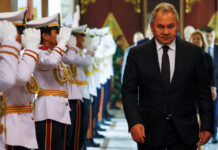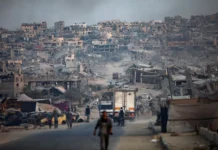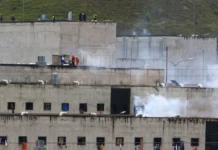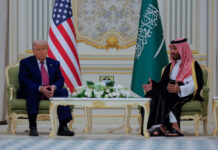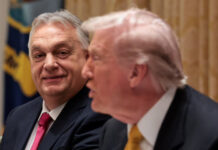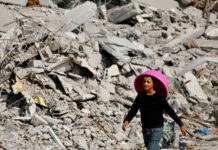Pope Francis on Sunday called for “an end to the attacks” in Israel, explaining that “terrorism and war do not lead to a solution”.
“I follow with apprehension and pain what is happening in Israel… I express my solidarity with the families of the victims,” he said in the Vatican’s St. Peter’s Square. “May the attacks and the weapons cease, I beg you,” he said.
Meanwhile, the death toll in the Gaza Strip rose to 313 Sunday, the health ministry in the Palestinian enclave said, as the army carried out air strikes on Hamas targets for the second consecutive day.
The Hamas-controlled ministry said another 1,990 people had been wounded in the fighting that began on Saturday after Hamas fired thousands of rockets into Israel in a surprise dawn assault.
The Iranian-backed Islamist militants who run the impoverished, blockaded Gaza Strip on Saturday fired thousands of rockets and infiltrated forces into Israel, 50 years after Arab states’ assault on Israel during the Jewish holy day of Yom Kippur.
Prime Minister Benjamin Netanyahu said Israel was at war. Just weeks earlier he had brushed aside the Palestinian issue during a speech at the United Nations and said normalization in 2020 with three other Arab nations in the so-called Abraham Accords had “heralded a new age of peace.”
Netanyahu also said Israel was on the cusp of a bigger prize — recognition by Saudi Arabia, guardian of Islam’s two holiest sites.
President Joe Biden, eager before next year’s US election for a major diplomatic win, has pushed for a deal, and more talks were expected in coming weeks — despite skepticism from some of Biden’s fellow Democrats about the proposed security guarantees to the conservative kingdom, whose rights record has long been under scrutiny.
“It was always a tough hill to climb, and that hill just got a lot steeper,” said Brian Katulis, vice president of policy at the Middle East Institute in Washington.
The violence throws a spotlight on disputes between Israel and the Palestinians and “makes it harder to sweep those complicated issues under the rug the way the 2020 Abraham Accords did,” he said.
Saudi Arabia’s de facto ruler, Crown Prince Mohammed bin Salman, has spoken recently of progress with Israel but also insisted on movement on the Palestinian cause, seen as a priority for the aging King Salman.
Saudi Arabia’s foreign ministry returned to familiar language Saturday, saying in a statement that the kingdom had been warning of an “explosive situation as a result of the continued occupation and deprivation of the Palestinian people’s legitimate rights.”
Aziz Alghashian, a Saudi expert on Saudi-Israeli relations, said the statement was intended to dispel any notion that the kingdom would prioritize normalization at the expense of supporting the Palestinians.
“This kind of situation has made Saudi Arabia go back to its traditional role,” he said.
“Netanyahu put another obstacle to these normalization talks because he said this is now a war. I don’t anticipate normalization is going to take place against the backdrop of war,” Alghashian said.
A US official said it was “premature” to discuss the violence’s effect on normalization, as Secretary of State Antony Blinken discussed the conflict with his Saudi counterpart, Prince Faisal bin Farhan, by telephone.
A Saudi readout of the call said Prince Faisal stressed “the kingdom’s rejection of targeting civilians in any way and the need for all parties to respect international humanitarian law.”










